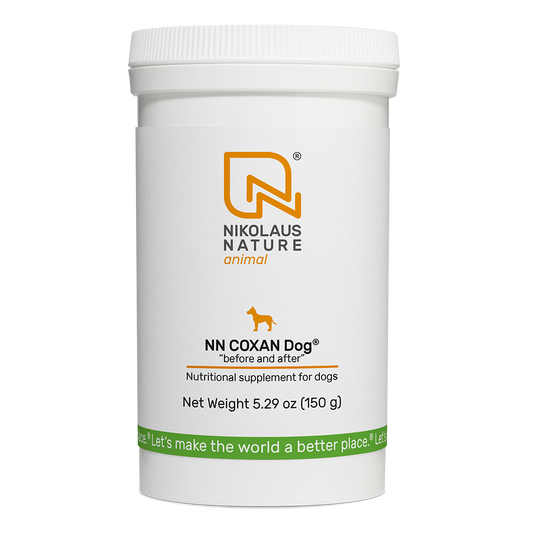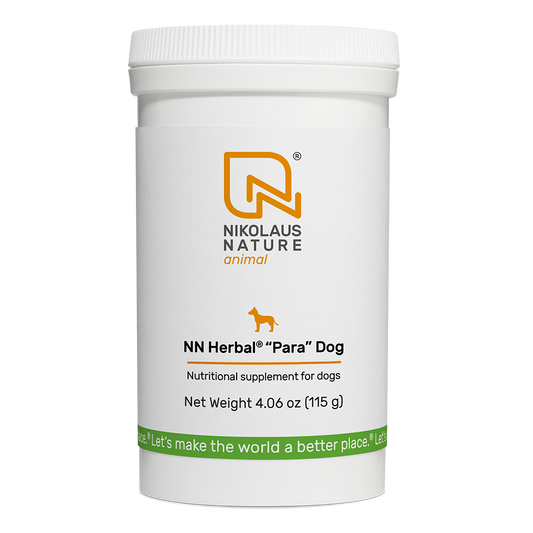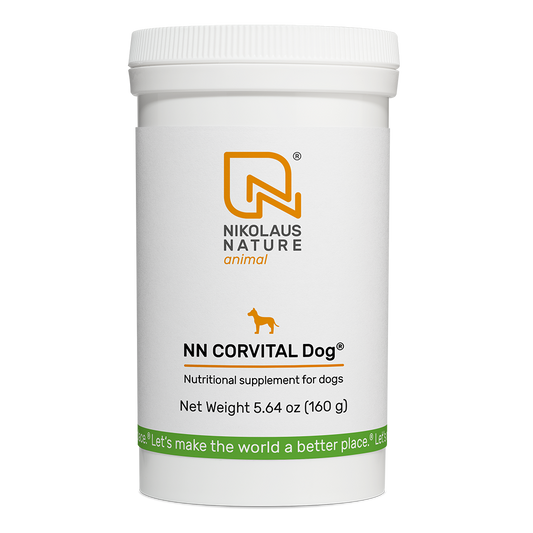Home Remedies for Dog Dandruff: Simple and Effective Tips
Did you know that dogs can get dandruff just like humans? Those tiny white flakes on your dog’s coat might seem harmless, but they can be a sign of issues like dry skin or allergies. Dandruff not only affects your dog’s appearance but can also make them itchy and uncomfortable.
The good news? You don’t need expensive treatments to help your pup. With simple home remedies, you can tackle the problem naturally and keep your dog’s coat healthy and shiny.
Keep reading to know the causes of dandruff in dogs and how you can use at home remedies to relieve their discomfort and improve their skin health.

What is Dog Dandruff?
Dog dandruff is the white flakes of dead skin that appear on your dog’s coat and skin. It is similar to human dandruff. It's a very common issue and usually nothing to be alarmed about. These flakes can also be found on your dog's bedding and other things they touch. Even perfectly healthy dogs can have a little dandruff from time to time.
Dandruff is a mild form of seborrheic dermatitis or seborrhea, which is when your dog's skin glands produce too much oil. This excess oil can cause the skin to become flaky, or in some cases oily.
Is Dog Dandruff Harmful?
Most of the time, dog dandruff is not harmful to your dog's health. However, it might be a sign that you need to change something, like their diet, or look for a hidden health issue.
If left untreated, dog dandruff can cause your dog to be uncomfortable and itchy. This could lead to them scratching, losing fur, or even getting sores and skin infections.
Signs That Your Dog Has Dandruff
It’s not always easy to spot dandruff in dogs, especially if they have light-colored fur.
Here are common signs to watch for:
- White Flakes on the Coat: Noticeable flakes on your dog’s fur, especially after brushing or petting.
- Dry, Flaky Skin: If your dog’s skin looks dry or cracked when you part their fur, it may be a sign of dandruff.
- Excessive Scratching: Dandruff often causes itchiness, leading your dog to scratch, lick, or bite their skin more than usual.
- Redness or Irritation: Prolonged dandruff may lead to skin irritation or redness.
- Oily or Greasy Coat: Some dogs with dandruff may also develop an oily coat due to overactive sebaceous glands.
Simple and Effective Home Remedies for Dog Dandruff
If your dog is suffering from dandruff, don't worry! There are several things you can do at home to help them feel better and get their coat back to its healthy shine. If the dandruff seems severe, it is best to consult with your veterinarian first to rule out underlying health issues that require specific management before attempting to implement home remedies for dandruff.
Feeding Your Dog a Balanced Diet
What you feed your dog plays a big role in their overall health, including their skin and coat health. A balanced diet can help reduce dandruff and potentially prevent it in the first place.
- Feed a high-quality balanced diet: This can be in the form of kibble or a fresh food diet. A balanced diet ensures your pet gets all the nutrients they need.
- Try a sensitive skin formula: Some diets are listed as for skin support. These are often fortified with Omega-3 fatty acids which help to promote the skin’s natural barrier.
- Add supplements or vitamins: Instead of completely changing your pets diet, owners can offer foods or supplements high in fatty acids alongside your pets diet. Fish oil supplements can be drizzled over the food for skin support.
Feeding your dog a well-rounded diet keeps their immune system strong and supports healthy, moisturized skin.
Increase Omega 3 Fatty Acids
Omega-3 fatty acids are great for your dog's skin health because they have anti-inflammatory properties. They help keep your dog’s skin hydrated and prevent dryness, which can lead to dandruff.
- Add fish like mackerel, salmon, and sardines to their diet in moderation.
- Flaxseeds and chia seeds are also good sources.
- Always check with your vet for the right dosage to avoid giving too much.
Properly Brushing & Grooming Your Dog
Regular brushing is an essential part of dandruff management. It not only helps remove those pesky flakes but also stimulates blood circulation, which is good for skin health.
- Use a soft-bristle or specialized dog brush that suits your dog’s coat type.
- Brush your dog at least 2–3 times a week to remove dead skin flakes and loose fur, or more often if they have a lot of dandruff.
- Brush their coat gently to distribute natural oils and prevent further irritation.
- Bathe your dog occasionally using a gentle, dog-specific shampoo to clean their coat without drying out their skin.
Proper grooming not only helps with dandruff but also strengthens your bond with your pet. It’s an easy and effective way to keep their coat healthy and reduce dandruff naturally.
Humidifier to Reduce Dry Air
If you live in a dry climate where the moisture is low or use central heating, such as during the winter, the air in your home can become very dry, which can cause dry skin in both humans and dogs.
Using a humidifier can add moisture back into the air, which can help prevent and alleviate dog dandruff. A humidifier benefits both you and your dog, keeping your skin and hair moisturized as well.
- Place the humidifier in the room where your dog spends the most time.
- Make sure to clean the humidifier regularly to avoid mold or bacteria buildup.
- Keep the humidity level balanced—not too high, as excessive moisture can also cause skin problems.
Give Plenty of Water
Just like humans, dogs need to stay hydrated for healthy skin. Make sure your dog has access to fresh, clean water at all times (especially during hot weather or after exercise).
You can add water or bone broth to your dog’s diet for extra moisture. Encourage drinking by using a pet water fountain, which many dogs find appealing.
Oatmeal Baths
Oatmeal baths are a well-known home remedy for soothing dry, itchy skin in both humans and dogs. Oatmeal contains compounds that help moisturize and reduce inflammation, making it a great natural treatment for dandruff.
Here's how to give your dog an oatmeal bath:
- Use plain, unsweetened oatmeal. Grind it into a fine powder using a blender or food processor.
- Fill a bathtub or basin with lukewarm water and mix the oatmeal powder until the water turns milky.
- Let your dog soak in the oatmeal bath for 10 minutes.
- Rinse thoroughly with lukewarm water and gently dry your dog with a towel.
Oatmeal baths are safe, natural, and effective for calming mildly itchy skin and treating dandruff without any harsh chemicals. They also leave your dog’s coat feeling soft and refreshed.
Include Supplements in Your Dog’s Diet
Supplements can play a major role in improving your dog's skin and coat health. Adding the right supplements gives your dog additional nutrients that might be missing from their regular diet.
- Omega-3 Fatty Acids: These are great for reducing inflammation and keeping the skin hydrated. Supplements like fish oil or flaxseed oil are excellent options.
- Vitamin E: Vitamin E helps keep the skin soft and moisturized. You can find Vitamin E in many dog-safe supplements.
- Probiotics: These improve gut health, which can directly impact skin health and reduce conditions like dandruff.
- Zinc and Biotin: Both are known to support healthy skin and reduce flakiness.
However, many commercial supplements are not regulated for pets, so it’s important to consult your veterinarian for recommendations before giving your dog any supplements.

Use an Anti-Dandruff Dog Shampoo
There are natural dog shampoos made with gentle ingredients that moisturize and soothe the skin, which can be helpful in treating dandruff.
Look for products containing:
- Aloe vera: Soothes irritated skin, reduces inflammation, and promotes a healthier coat. Choose shampoos with natural aloe vera gel or extract, rather than artificial additives.
- Coconut oil: Hydrates the skin, reduces itchiness, and protects against skin infections. Organic, cold-pressed coconut oil is best.
- Oatmeal: Soothes itching, inflammation, and dryness. Colloidal oatmeal has a higher concentration of active compounds.
- Essential fatty acids (omega-3 and omega-6): Nourish the skin, improve its health, and help reduce dryness and flakiness.
You should avoid using human shampoos on dogs because they are not formulated for a dog’s pH levels and are not soap-free like dog-specific shampoo so they can dry out the skin and coat.
Follow the instructions on the shampoo label and avoid overbathing, as frequent baths can strip the skin of natural oils.
Also, avoid shampoos that contain artificial fragrances, sulfates, parabens, or other harsh chemicals that can irritate the skin and worsen dandruff.
Regular use of anti-dandruff dog shampoo, combined with proper brushing and care, can keep your dog’s coat clean, healthy, and free of flakes.
What Causes Dandruff in Dogs?
There are many reasons why your dog might have dandruff. I can be a sign of something else going on, rather than a problem on its own.
Here are some of the common causes:
Dry Skin
Just like humans, dogs can get dry skin, especially during colder months or in dry climates.
Allergies
Dogs can have allergies to things in their environment or even to ingredients in their food. Allergies can make their skin itchy and flaky.
Parasites
Tiny creatures like mites can live on your dog’s skin and cause irritation and flaking. A type of mite called Cheyletiella is even known as "walking dandruff" because it looks like flakes moving around in the fur.
NN Herbal - Dog Pest Supplement helps support your dog’s overall skin health and immunity.
Poor Nutrition
A diet lacking in essential nutrients, especially fatty acids like omega-3s and omega-6s, can affect your dog's skin and coat health, leading to dandruff.
Skin Infections
Bacterial and fungal infections can cause skin irritation and dandruff. Infections tend to be a secondary issue related to underlying allergies, skin conditions or disorders affecting a dog’s immune function.
Hormonal Imbalances
Conditions like hypothyroidism and Cushing's disease can affect your dog's skin and make them more prone to dandruff.
Seborrhea
This is a condition where the skin glands that produce oil (sebum) don’t produce it at appropriate levels. It can cause either oily or dry dandruff. Some breeds, like Basset Hounds and Cocker Spaniels, are prone to a genetic form of seborrhea called primary seborrhea.
Over-bathing
While dogs need baths sometimes, bathing them too often can strip away the natural oils that protect their skin and lead to dryness and dandruff.
Stress
Believe it or not, stress can affect your dog's skin health and contribute to dandruff. In some cases, the exact cause of dandruff might be unknown.
This is called idiopathic seborrhea. While treatment can be effective for the symptoms, the underlying cause may remain unidentified.

When to Seek Veterinary Advice?
While mild cases of dog dandruff can often be managed with home remedies, some situations warrant a trip to the vet.
It's important to seek veterinary advice if:
- Home remedies aren't working: If you've tried the tips mentioned above, but your dog's dandruff persists or worsens, it's necessary to consult your vet.
- Your dog is experiencing additional symptoms: Look out for signs like excessive scratching, skin odor, hair loss, irritated or red skin, and excessive licking of paws or legs. These could indicate a more serious underlying issue.
- Your dog seems unwell or uncomfortable: Any signs of discomfort or changes in behavior, along with dandruff, should be addressed by a veterinarian.
- You suspect parasites: If you see flakes that seem to be moving, your dog might have mites. These require veterinary treatment.
Your vet can perform a physical examination and further diagnostic testing, if necessary, such as:
- Skin scrapings: This involves gently scraping the skin to collect samples that can be examined under the microscope for parasites like mites, or organisms that cause infection like bacteria or yeast.
- Allergy testing: Intradermal skin testing can be used to identify environmental allergens while a food trial is necessary to identify food allergies.
- Blood tests: Blood work can help rule out underlying health conditions, such as hormonal imbalances or systemic illnesses, that may be causing or exacerbating the dandruff.
Based on the diagnosis, your vet can recommend the most appropriate treatment plan, which may include:
- Prescription medication: Your vet may prescribe medicated shampoos, topical creams, oral medications, or even injections to address the underlying cause of the dandruff.
- Dietary changes: Your vet might recommend a diet formulated to support skin health or suggest specific food changes to address potential allergies or nutritional deficiencies.
Conclusion
So there you have it! Dandruff in dogs is a pretty common issue, but it's usually nothing to stress about. More often than not, it's just a sign that something's a bit off with their skin. The good news is, with a bit of TLC and the right know-how, you can help your pup get back to its shiny, flake-free best!
Remember: It's always best to chat with your vet if you're concerned about your dog's dandruff. They can help figure out what's going on and recommend the best course of action.
Now that you know the ins and outs of dog dandruff, what are you waiting for? Go give your furry friend a good scratch behind the ears and get ready to tackle those pesky flakes!
FAQs
Is dog dandruff the same as human dandruff?
No, dog dandruff and human dandruff are not the same. While both involve flaky skin, the causes and treatments can be different due to variations in skin type and condition.
How often can I give my dog an oatmeal bath?
You can give your dog an oatmeal bath once a week or as needed, depending on their skin condition. If their skin is very dry or irritated, a bath every few weeks might be sufficient.
Can I add supplements to my dog’s diet for dandruff?
Yes, adding omega-3 fatty acids, vitamins, and other skin-boosting supplements can help improve your dog’s skin health and reduce dandruff over time.
Does dehydration cause dandruff in dogs?
Yes, dehydration can contribute to dry skin and dandruff in dogs. Ensuring your dog has plenty of fresh water can help reduce dandruff.
Can dandruff be a sign of an underlying health issue?
Yes, dandruff can sometimes indicate underlying health problems, such as allergies, infections, or hormonal imbalances, and it’s important to consult a vet if it persists.
Sources:
- Seborrheic skin disorders in dogs, https://www.sciencedirect.com/science/article/abs/pii/0738081X94902224
- Effects of climate on skin condition, https://pubmed.ncbi.nlm.nih.gov/26449379/
- Skin Scraping, https://wcvm.usask.ca/learnaboutparasites/diagnostics/skin-scraping.php
- Breed-specific dog-dandruff allergens, https://www.sciencedirect.com/science/article/abs/pii/0091674988909992







